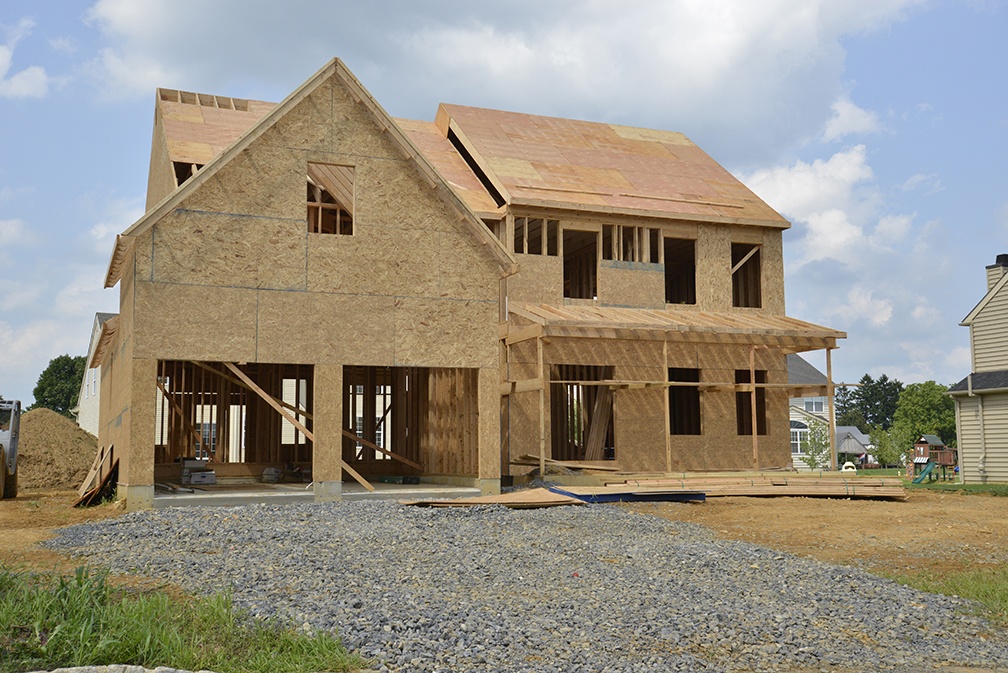 The national reading for home builder confidence rose one point to an index reading of 83 in April; the National Association of Home Builders predicted a reading of 84. Component readings for April’s national index readings were mixed. Builder confidence in current market conditions for single-family homes rose one point to 88. Builder confidence in market conditions for single-family homes in the next six months fell two points to 81 but homebuilder confidence in buyer traffic in new home developments rose two points to an index reading of 75.
The national reading for home builder confidence rose one point to an index reading of 83 in April; the National Association of Home Builders predicted a reading of 84. Component readings for April’s national index readings were mixed. Builder confidence in current market conditions for single-family homes rose one point to 88. Builder confidence in market conditions for single-family homes in the next six months fell two points to 81 but homebuilder confidence in buyer traffic in new home developments rose two points to an index reading of 75.
Readings over 50 indicate a majority of builders are positive about housing market conditions. Buyer traffic readings published before the pandemic rarely exceeded index readings of 50.
Regional Home Builder Confidence Varied
Regional readings for home builder confidence varied in April. The Northeast region reported an index reading of 84 in April, which was two points lower than in March. The Midwestern region’s April reading was three points lower at 75 than in March. Homebuilder confidence in the South rose two points to 84 and builder confidence in the West was unchanged with an index reading of 92.
NAHB’s Three-month moving average of regional homebuilder confidence in housing market conditions reported for the Northeast rose six points to 86; builder confidence in the Midwest fell two points to 78 and builder confidence in housing market conditions rose one point to 83. Builder confidence in housing market conditions in the West was unchanged at an index reading of 90.
High Demand for Homes Persists as Materials Costs Limit Affordability
Shortages of available pre-owned homes continued to boost new home sales, but rising materials costs and supply chain issues presented ongoing challenges to builders. NAHB Chair Fowkes said, “The supply chain for residential construction is tight, particularly regarding the cost and availability of lumber, appliances, and other building materials.”
Affordability is a substantial obstacle for first-time and moderate-income home buyers Prices of pre-owned homes are rising at their fastest pace in 15 years as mortgage rates move higher. NAHB Chair Fowkes also said, “Though builders are seeking to keep prices affordable…policymakers must find ways to increase the supply of building materials as the economy runs hot in 2021.”
Homebuilders and potential home buyers can expect ongoing challenges in 2021. As home prices rise, fewer families can enter the housing markets; other potential buyers may decide to postpone buying homes until home price growth eases.
 Twenty years ago the economy was putting the dot-com bubble behind it, and people were buying homes. The high majority of folks worked for someone else; they received a paycheck, were given a W-2 from their employer, and filed their income tax returns accordingly.
Twenty years ago the economy was putting the dot-com bubble behind it, and people were buying homes. The high majority of folks worked for someone else; they received a paycheck, were given a W-2 from their employer, and filed their income tax returns accordingly. At the flowers begin to bloom and the weather starts to warm up, everyone is thinking about spring cleaning. It is critical to make sure the house is ready for the warmer weather. What are the top spring maintenance tasks that have to be completed? Do not procrastinate on these tasks, as the price could be high.
At the flowers begin to bloom and the weather starts to warm up, everyone is thinking about spring cleaning. It is critical to make sure the house is ready for the warmer weather. What are the top spring maintenance tasks that have to be completed? Do not procrastinate on these tasks, as the price could be high. Upgrading your rental doesn’t need to cut deeply into your profits. You can add curb appeal and help prospective tenants see your rental as their next home by making some simple changes. The following upgrades are all things that a handy landlord can do without needing to hire professional contractors.
Upgrading your rental doesn’t need to cut deeply into your profits. You can add curb appeal and help prospective tenants see your rental as their next home by making some simple changes. The following upgrades are all things that a handy landlord can do without needing to hire professional contractors. The Federal Reserve has a dual legal mandate to achieve an inflation rate of 2.00 percent and maximum employment. While inflation is expected to exceed 2.00 percent in 2022 and beyond, unemployment remains above pre-pandemic levels. FOMC members did not raise the Fed’s key interest rate range from 0.00 to 0.25 percent.
The Federal Reserve has a dual legal mandate to achieve an inflation rate of 2.00 percent and maximum employment. While inflation is expected to exceed 2.00 percent in 2022 and beyond, unemployment remains above pre-pandemic levels. FOMC members did not raise the Fed’s key interest rate range from 0.00 to 0.25 percent. When you are preparing to list your home for sale, you may take various steps to stage the interior so that it is appealing to a potential buyer. In addition to various steps you may take with staging the interior, you want to pay attention to your yard as well. During the spring months, many yards look fresh and vibrant, but they also need some extra care in order to boost curb appeal and make a great first impression on buyers.
When you are preparing to list your home for sale, you may take various steps to stage the interior so that it is appealing to a potential buyer. In addition to various steps you may take with staging the interior, you want to pay attention to your yard as well. During the spring months, many yards look fresh and vibrant, but they also need some extra care in order to boost curb appeal and make a great first impression on buyers.